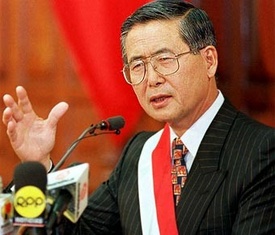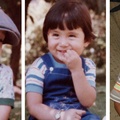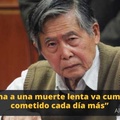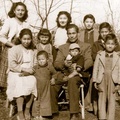When reviewing the press I was surprised by an article referring to the newly elected President of the Philippines RODRIGO DUTERTE (June 2016) who, as soon as he was in the presidential chair, began an open raid against the large crime and drug companies that, once Furthermore, they were fighting to take possession of the national institutions as in the times of Ferdinand Marcos (1965-1986). Hence, during his campaign, Duterte did not hesitate to state: “If I assume the presidency, I can assure that there will be no cleanup without bloodshed.”
For the rest, the statistics gave full support to his urgent task. Crime went from 218,000 cases in 2012 to 1,100,000 in 2014. For this reason, as soon as September appeared on the calendar, an official list of 159 “dirty” appeared, made up of 8 judges, 53 mayors and former mayors, 3 congressmen and 95 police and soldiers who had to immediately appear before the authorities. Parallel to this, local media began to report that both in Manila and other major cities, police and self-proclaimed “vigilantes” were eliminating alleged crime and drug offenders in a number that could be reaching (unsupported figures) 800 or 3,500. Of course, with this news spread in full color, Duterte is already in doubt with the European Union and the UN.
Will Duterte manage – even though he has a large popular majority – to realize his great mission of social healing to resume the economic and cultural growth that in the first decade of this century placed the Philippines among the 12 most developed nations? Will he be able to avoid the enormous influences and benefits that this almost mythical machinery of human degradation made up of petrifying Jellyfish, bloodthirsty Cancerberos and Sirens with deceptive songs will undoubtedly bring into play?
At least History is not generous with those who try to swim against the current and think big. On the contrary, there is a long list of associates of these dark brotherhoods that under a thousand masks and strategies keep their respective Peoples subjugated for decades and decades. As for positive leaders, they are only exceptions who are quickly vilified and persecuted. They take away their bread and water, falsify their works and principles and sentence them to a predominantly tragic end. As an example and based on the initial steps taken by Duterte, I allow myself to mention two great people from this Southern Cone of America who dared to walk the thorny path of universal Justice.
In Chile, we had the possibility of taking a great leap forward with the leadership of SALVADOR ALLENDE (1971-1973) who sought to make peace and harmony the reason for his revolution “Chilean style with empanadas and red wine.” . He received the unrestricted support of the People but, from that very moment, Sirens with plaintive voices sought to intoxicate their naive consciences. And just after a thousand days, packs of Cancerberos pounced on crowds that did not understand. Defending his ideals, Salvador Allende commits suicide while the Government House burns, bombed from the air. Then, a slave night fell on Chile for 17 years. In the final count there was only a balance of thousands of murders, vicious persecutions, endless looting, permanent sowing of fear and hunger... And the greatest prize to be distributed was the national patrimony. Of course, in this particular war with only the army of attackers, the only winners were the Medusas and their troupes who to this day have continued to contain the democratic advance while the historical truth is difficult to unravel.
In any case, the Truth seems to be here to stay because fear is changing sides in the face of convictions and suicides of torturers and murderers who are falling one by one. That group of “judges” who served the tyrant on their knees also begin to lose their disguises. (Collective Memory never forgets). And something last minute. The US declassifies compelling CIA documents with the figure of the tyrant shown in full body. Without hesitation, the Chamber of Deputies describes Pinochet as “the most violent and criminal governor that Chile has had in its history.”

Another undisputed leader is a son of Peru who presents special characteristics that are confusing because he is a 'Nikkei' who, in the face of the extreme historical moment that he had to face, uses all that Japanese genetics typical of a samurai where the seven virtues of 'Bushido' ' decide and act, as happens with Justice (' gi ') which has no middle ground, Courage ( ' ju ') that faces the enemy without hesitation or Honor ( ' meiyo ') where each personal act responds to the teachings ancestral family morality. ALBERTO FUJIMORI ended up occupying the presidential seat only for charisma. The People see their Savior in “Chinito” and the polls give him 62.4% of the preferences in their final count.
But the receiving country is on the brink of collapse. A) The bulk of its population experiences hyperinflation that must be calculated in thousands%. B) It carries a foreign debt of 20,000 million dollars that is impossible to amortize because each dollar is valued at 4,800 inti (Peruvian currency). C) It suffers widespread corruption due to the dominant influence of drug trafficking that moves 60% of the world's coca. D) Added to this is terrorism managed by guerrilla groups that keep the State itself in check despite a useless “dirty war.”
Fujimori, to face such a challenge, achieves the support of the International Financial Community, the Armed Forces and an active People. Without further waiting, it eliminates the obstacles that seek to paralyze it (dissolves Congress, reorganizes the Judiciary, suspends the Constitution) and with a free hand gives way to a Government of Emergency and National Reconstruction. From then on the Jellyfish begin to lose their heads. So much so that in just two years (1992) inflation was reduced to 56.7%, the lowest in 15 years.
His first great concern was to bring Justice closer to that enormous Collective that survives isolation and abandonment for decades and where cholera epidemics become high-frequency visitors. To clean everything up, it gave way to multiplied drinking water and sewage networks, reconstructed and laid out new roads and streets, materialized housing plans, electricity, collective transportation and later telephone. In 1995, life expectancy rose to 77.6 years and illiteracy fell to 48%.
In parallel, with sustained raids it combats drug trafficking. But, in the end he only manages to resent it by no more than 25%. The economic and structural power of international and local drug trafficking, strengthened by decades of government paralysis, has allowed it to build a fierce bastion of diversified Medusas that would require the presence of more than one Perseus to seriously damage them. In 2002, the US reports that Peruvian coca cultivation had increased by 23% compared to the previous year.
Its third major task was to disrupt the guerrilla groups that, with terrorism on their backs, manage armed contingents almost equivalent to a third of the components of the regular army. To achieve this, he waves a flag of Justice ('gi') that knows no concessions for crime. In a few years, the guerrilla power weakens and ends up dismantled with the fall of its leaders. But what Fijimori did not know how to combat was that dark force focused on crime, terrorism, theft, drug trafficking and deception that, operating from within his own government strongholds, prepared the conditions to hand him over to the packs eager for revenge for the much damage received.
With the beginning of the new century, Fujimori's work falls into a thick silence that does not allow his apparently unusual behaviors to be clarified. We only know that he traveled to Japan, perhaps trying to recover his forces already weakened after so many treacherous attacks. But, as soon as the news spreads about an abandoned presidential chair, Peru's beneficial history with Fijimori begins to be manipulated and replaced with the sticky tissue of frantic spiders.
Surely, already foreseeing the fate that awaited him, Fujimori returned to Peru to offer his life in defense of his Honor ('meiyo'), tainted to the point of impossibility... The result is known to everyone. In the absence of crimes, he was sentenced in April 2009 to 25 years in prison for reasons based on “mediate authorship” (?).
Will we have to wait another decade - as has happened in Chile - for the Truth to once again review those ten years of Peruvian History? Because then, I have no doubt that the result will impose the collective recognition of this great man and statesman who, by cleaning and establishing the foundations of his Nation, left standing the real possibility of it being located in the place of obvious progress in which it is. today, diametrically opposed to the one that was engulfed so recently. For the rest, the People who have never forgotten him will once again proudly carry his name on their backs.
© 2016 Ariel Takeda





